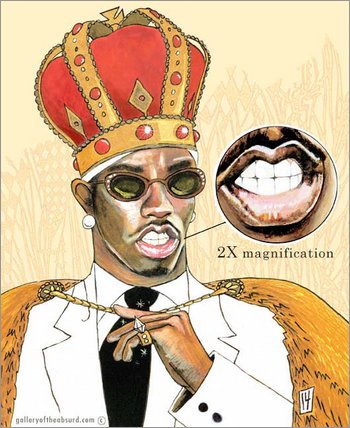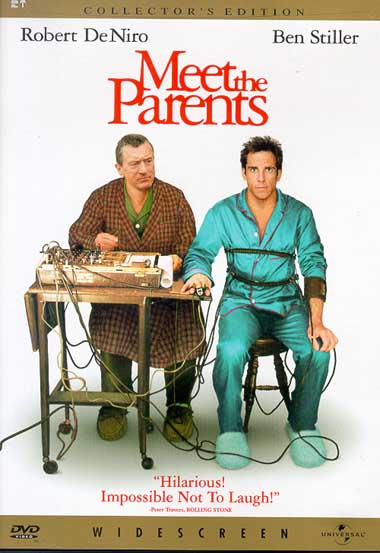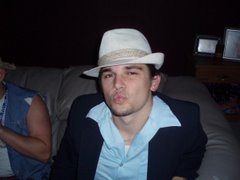I went to the theater the other day hoping to see "Blades of Glory." I would have settled for seing generic blades of glory, which would have been pretty impressive, although I don't know exactly what they would be (knives? skates? vampire movies?).
Anyway, while in line, a 60ish woman starts chatting up my girlfriend and me. She recommends "Wild Hogs," which if you don't know, is a movie about middle-aged men who start riding Harleys, but aren't very good at it. It stars Travolta (yeah, he gets the single-name treatment), Lawrence (Martin, doesn't get the treatment), Allen (Tim, ditto) and H. Macy (William). This movie, the woman assured us, was funny.
You should know, Blades of Glory was sold out
"Wild Hogs" is not funny. Not intentionally, anyway. The plot is basically this: The Wild Hogs gang gets into some trouble at a biker bar with real bikers. Travolta sabotages their bikes, causing a battle that ends with a ludicrous standoff in some quiet town. Travolta, Allen, H. Macy and Lawrence hold off about 60 bikers. Along the way, we get a series of gags about how middle aged men have to pee a lot, aren't exciting, and are whipped by their wives. I think I laughed audibly one time during the movie, although the scene was so good, I cannot recall what I laughed at.
I should have known. Old people, especially old women, have terrible taste in movies. For some reason, movie cliches don't bother them*. They actually embrace them.
For old people, cliches are a symbol that nothing is changing, that the world isn't passing them by, after all. Old people hate it when things change. They've resisted computers and cell phones for decades now, insisting that things were better in their day, before all the technology, despite the obvious truth that these things have made life exponentially easier, particularly for people who are disinclined to physically exert themselves.
But beyond that, I think this shows a fundamental difference in the way our generations use media. Someone in their 60s grew up in a world with three television channels, the local newspaper and movies in theaters only. When it came to media, they just took what they could get, and because there was not much competition, what they got was minimal and not necessarily good. But is was there, and that was enough.
My generation is a media-saturated one. We have hundreds of TV channels, movies on demand, videos on the internet and access to news media from all over the world. As a result, we don't give anything the benefit of the doubt because we know there is always something better at our findertips. Example: I rented "Saw," hated the first 20 minutes, shut it off and returned it. And that's a movie most people liked. When I got back from the video store, I watched a video of a lion attack on ebaumsworld.com. I knew, without the movie, I would still be able to entertain myself.
Now, if somebody could just figure out old people's obsession with pecan pie ...








